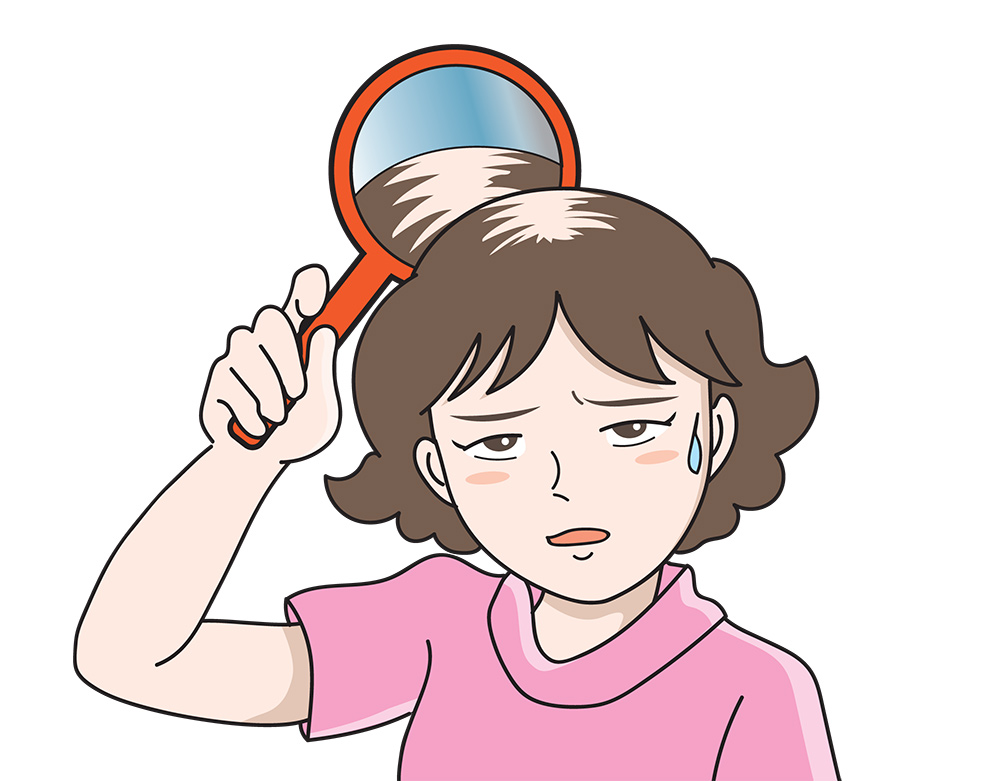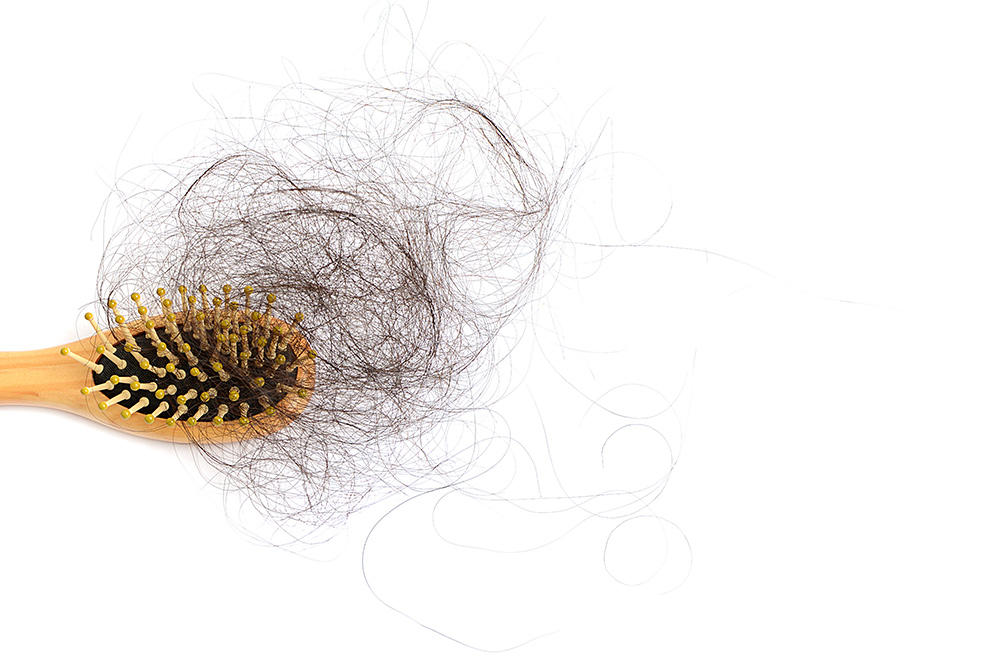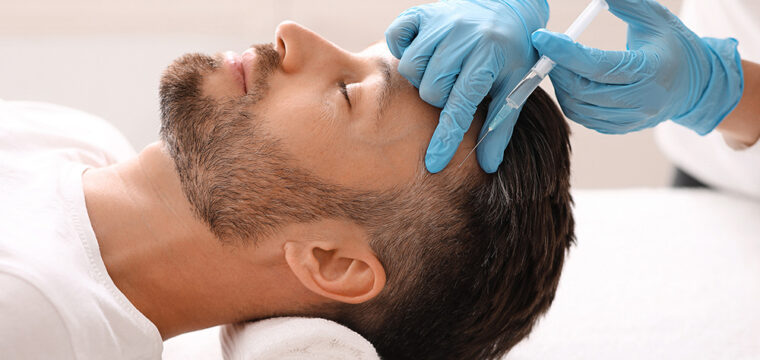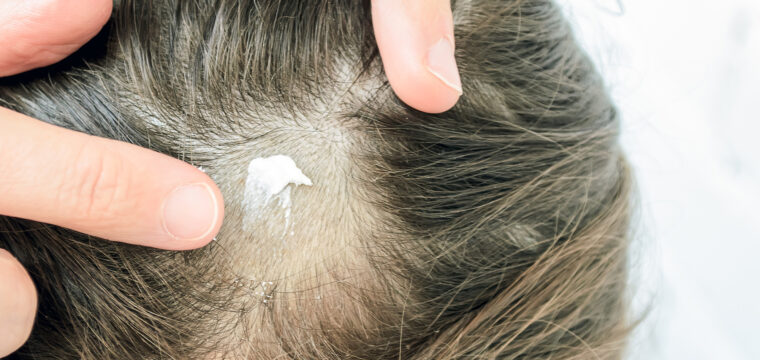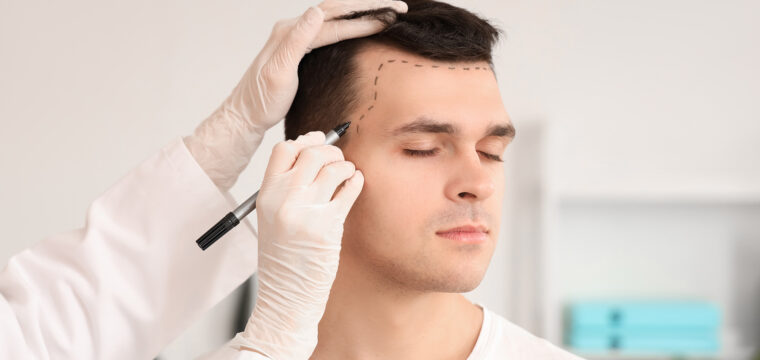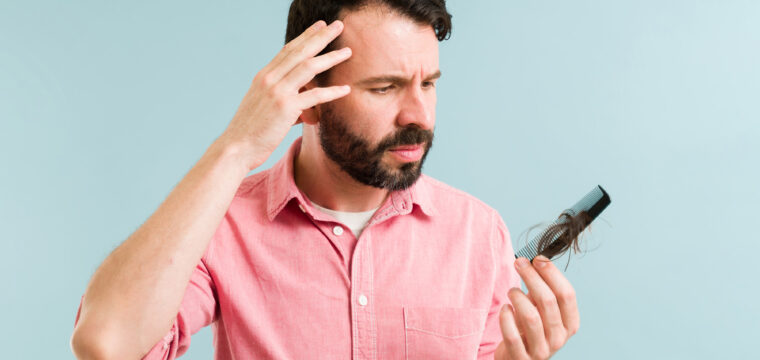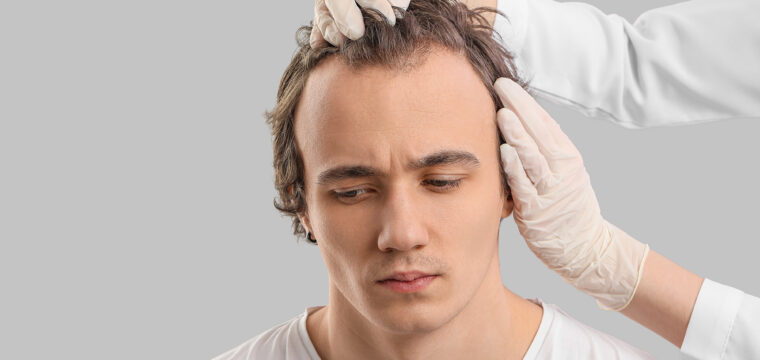Last updated on March 27, 2024
Menopause, a natural and inevitable stage in a woman’s life, represents a significant transition marked by hormonal shifts and various physical changes. While well-known for symptoms like hot flashes and mood swings, menopause can also bring about another concern that many women find distressing—hair loss and brittle hair. Here, Hair Doctors in Sydney looks at the issue of menopause hair loss, exploring its causes and ways to manage hair loss and promote healthy hair growth as you age.
Understanding Menopause
Menopause typically occurs between a woman’s late 40s and early 50s, signifying the end of your reproductive years. This natural biological process is marked by a decrease in the production of oestrogen and progesterone, two crucial hormones that play a pivotal role in regulating the menstrual cycle and supporting overall health, including healthy hair growth.
Hormonal Changes and Their Impact on Menopause Hair Loss
The hormonal fluctuations during menopause can profoundly influence various aspects of a woman’s health, including her hair. Oestrogen, a hormone vital for hair growth, experiences a notable decline during menopause. This reduction can disrupt the normal hair growth cycle, leading to menopause hair loss and female pattern hair loss as well as thinner strands, increased shedding, shrinking hair follicles, and changes in the texture of the hair. While many menopause symptoms cause disruption and discomfort, menopause hair loss is one that is naturally concerning and can have an impact on mental wellness and self-esteem.
Types of Hair Loss During Menopause
Menopause-related hair loss can manifest in different forms:
- Female Pattern Hair Loss (Androgenetic Alopecia): This type of hair loss in women is characterised by a gradual thinning of hair, primarily at the crown and along the part line. Female pattern hair loss is influenced by genetics and hormonal changes, particularly the increased presence of androgens, often considered male hormones.
- Telogen Effluvium: This is a temporary shedding of hair that occurs due to disruptions in the normal hair growth cycle. Menopausal women may experience this type of hair loss and brittle hair as a result of hormonal changes, stress, or other factors.
Identifying Menopausal Hair Loss
Recognising the signs of menopausal hair loss and female pattern hair loss is crucial for seeking timely intervention. Women may observe increased hair shedding, a widening part line, or a reduction in overall hair volume. If these signs are noticed, seeking the advice of a healthcare professional or dermatologist is recommended for a thorough evaluation.
Coping Strategies for Menopausal Hair Loss
- Choosing the Right Hairstyle: Choose hairstyles that add volume and minimise the appearance of hair thinning and hair loss in women.
- Volumising Products: Using hair products designed to add volume can help improve the appearance of hair thinning.
- Wigs or Hairpieces: If you want a more immediate solution to hair loss, wigs or hairpieces can be a viable option.
- Exploring Hair Growth Treatments: Consultation with healthcare professionals can provide insights into medications like minoxidil or other hair growth treatments that may help mitigate hair loss and stimulate hair follicles to restore hair growth.
- Emphasising Self-Acceptance: Acknowledging and accepting changes in hair appearance as a natural part of the menopausal journey is fundamental for emotional well-being.
Hair Care and Nutritional Tips for Brittle Hair and Hair Thinning
Maintaining overall hair health during menopause involves adopting a holistic approach:
- Gentle Hair Care Routines: Avoiding harsh treatments, minimising heat styling, and using mild, nourishing hair care products can contribute to healthier hair and reduce hair loss.
- Nutrient-Rich Diet: Ensuring a balanced diet rich in vitamins, minerals, and proteins as well as nutritional supplements will support overall health, including hair growth and healthy hair follicles.
- Hydration and Stress Management: Staying hydrated and managing stress through practices like yoga or meditation can positively impact hair health.
- Products with Hair-Healthy Ingredients: Using products containing ingredients like biotin, known for supporting hair growth and stimulating hair follicles, can be beneficial for hair loss and help prevent thinning hair.
Lifestyle and Hormone Management
It’s a good idea to explore lifestyle changes that can contribute to managing hormonal fluctuations during menopause and reducing hair loss. Regular exercise, a balanced diet, and stress reduction techniques are integral components to preventing thinning hair. The potential role of hormone replacement therapy (HRT) in addressing both significant hair loss and other menopausal symptoms should be discussed with healthcare professionals.
Experiencing Menopause and Hair Loss? Speak to Female Hair Loss Professionals in Sydney
Want to speak to a medical professional about menopause hair loss, thinning hair, and female pattern hair loss? Contact Hair Doctors in Sydney to find out about the latest hair growth treatments and hair loss products. As the top rated hair clinic in Sydney, we’re here to support you throughout this journey.
FAQs
What is menopause-related hair loss, and why does it occur?
Menopause-related hair loss refers to the thinning or shedding of hair experienced by women during menopause. It occurs due to hormonal changes, particularly a decrease in oestrogen levels, which disrupts the normal hair growth cycle.
What are the different types of hair loss during menopause?
Menopause-related hair loss can manifest as female pattern hair loss (androgenetic alopecia) or telogen effluvium. Female pattern hair loss involves gradual thinning, while telogen effluvium is characterised by temporary shedding due to hormonal changes or stress.
How can I identify menopausal hair loss?
Signs of menopausal hair loss include increased shedding, a widening part line, or reduced overall hair volume. Seeking advice from a healthcare professional or dermatologist for evaluation is recommended if these signs are observed.
What are some hair care and nutritional tips for managing brittle hair and hair thinning during menopause?
Hair care tips include avoiding harsh treatments, minimising heat styling, using mild hair care products, ensuring a nutrient-rich diet with vitamins and proteins, staying hydrated, managing stress, and using products containing hair-healthy ingredients like biotin.
Are there lifestyle changes or hormone management options that can help reduce hair loss during menopause?
Lifestyle changes such as regular exercise, a balanced diet, and stress reduction techniques can help manage hormonal fluctuations during menopause and reduce hair loss. Discussing the potential role of hormone replacement therapy (HRT) with healthcare professionals is also advisable.
How do I find the best hair clinic in Sydney for menopause related hair loss?
To find the best hair clinic in Sydney for menopause-related hair loss, consider factors like reputation, expertise, and personalised treatment options. Hair Doctors stands out as a top choice due to its experienced medical professionals, FDA-approved treatments, and commitment to achieving optimal results for hair growth and restoration.

